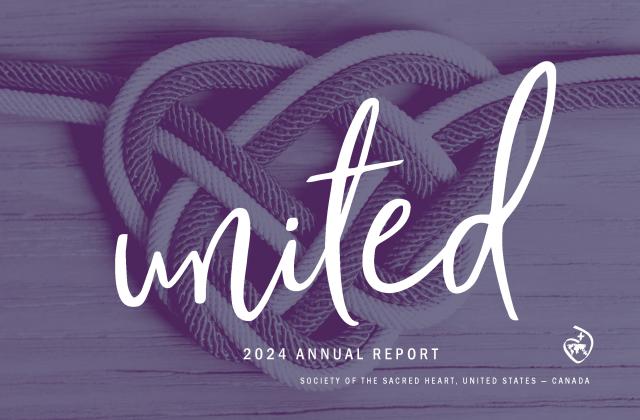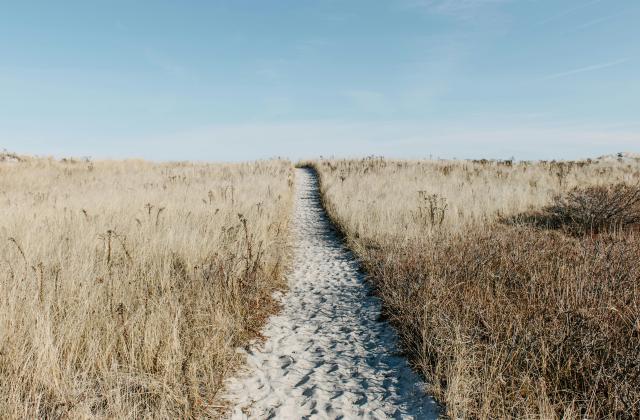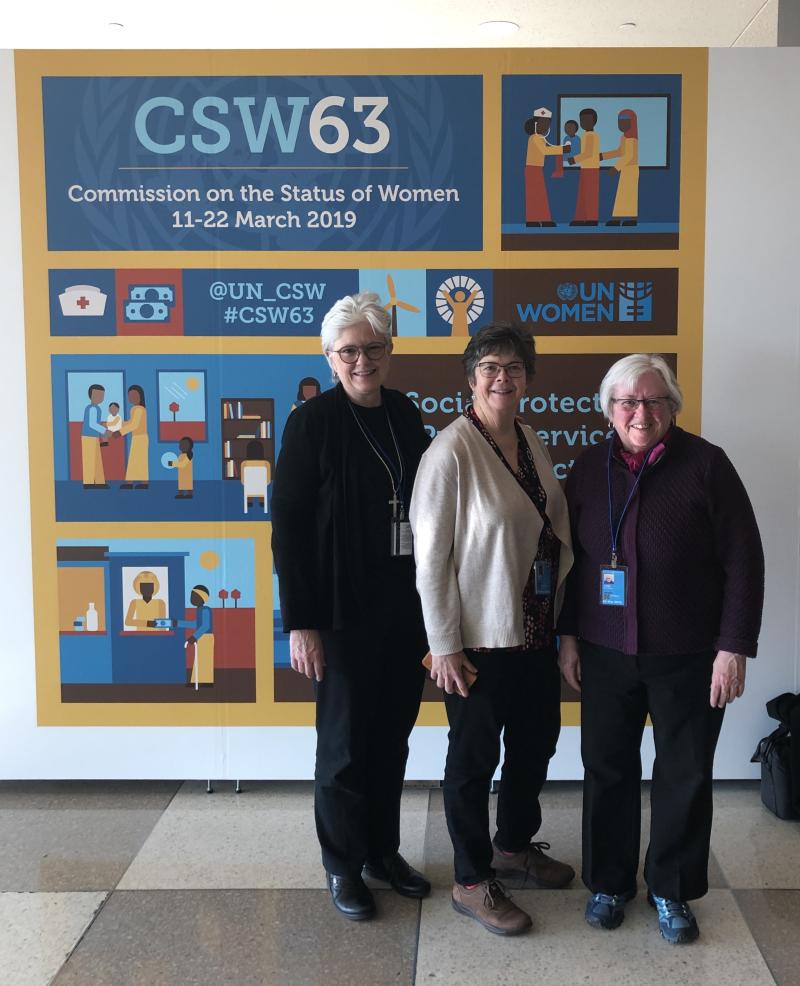
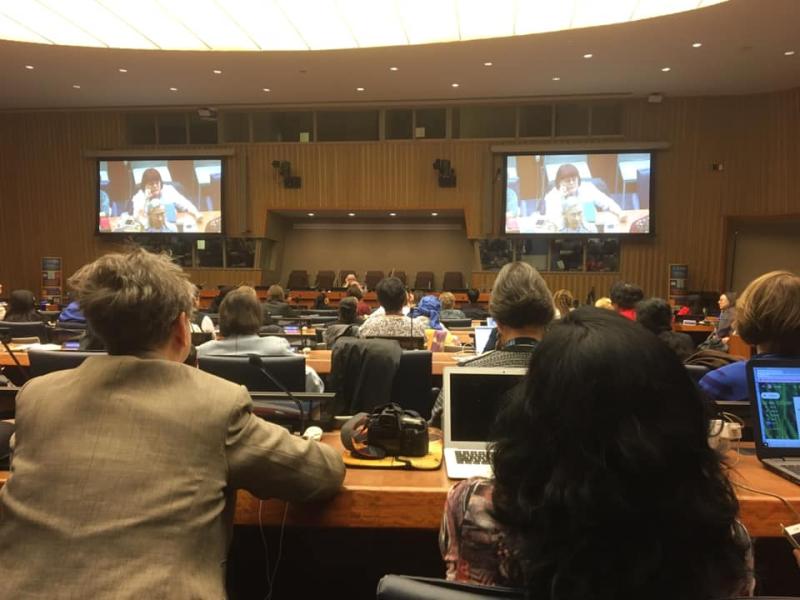
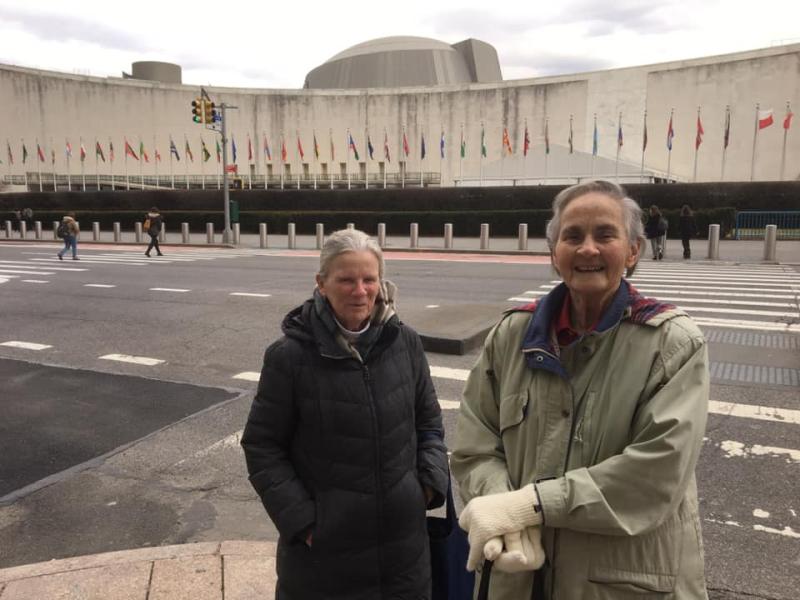
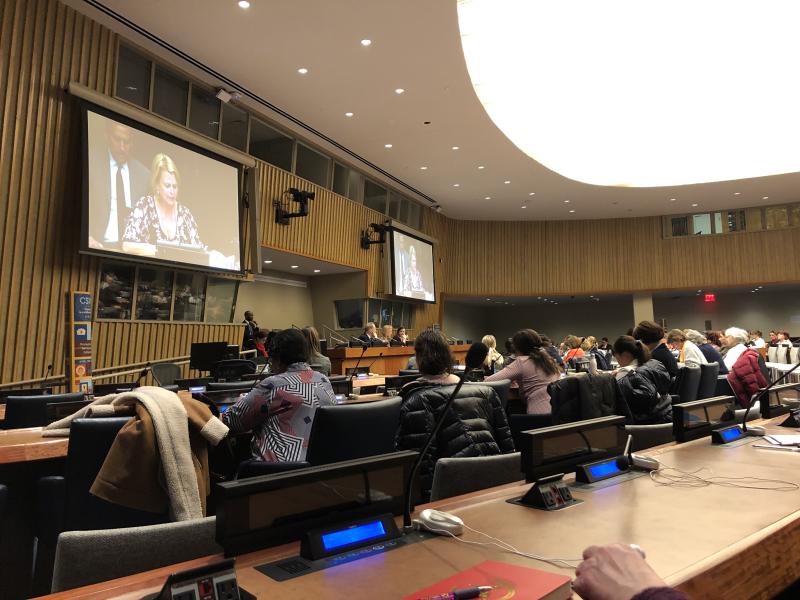
This past March, the United Nations (U.N.) Headquarters in New York hosted the 63rd Commission on the Status of Women (CSW), bringing together more than 5,000 delegates from around the world, including several RSCJ from the United States – Canada Province.
Sheila Smith, RSCJ, the international Society of the Sacred Heart’s U.N.-NGO (nongovernmental organization) representative, along with Anne-Marie Conn, RSCJ, and Bridget Bearss, RSCJ, among other RSCJ in the New York metro area, attended the commission, which took place March 11-22, 2019.
The Commission on the Status of Women (CSW) is the principal global intergovernmental body exclusively dedicated to the promotion of gender equality and the empowerment of women according to the U.N. website.
Sister Smith explained that the commission is a collection of simultaneous events: official meetings, where governments discuss and negotiate policy; side events led by U.N. member states, usually involving panels; and parallel events, led by NGOs, those in civil society, which take place outside of the U.N. office.
The Society co-sponsored several parallel events with multiple organizations, including several religious orders. Co-sponsoring involves organizing the event; ensuring a space; and putting together a panel, promotional materials and a concept note/short proposal presented to and accepted by the Committee on the Commission on the Status of Women.
Sister Smith was involved in the planning of four Society co-sponsored parallel events:
• Addressing vulnerability: Collaborative approaches to trafficking prevention through a human rights lens• Reaching the roots: Social protection for indigenous women and girls, which Sister Smith moderated• Mahila: A women’s movement rising, which highlighted the vulnerabilities of women in India and how they are empowering themselves• Using the SDGs (Sustainable Development Goals): Preventing women and girls’ vulnerabilities to trafficking
“To co-sponsor events is one way to use our voice,” said Sister Smith. “Using our voice could be one of us sitting on a panel or bringing in partners in mission, who have expertise on the issue.”
Sister Smith added that a goal of hers, because of her former ministry working with indigenous women in Canada, is to always make sure the voices of indigenous women are heard. One way that she was able to accomplish this was to sponsor Hilda Anderson-Pyrz, an indigenous woman and the manager of the Missing and Murdered Indigenous Women and Girls Liaison Unit atManitoba Keewatinowi Okimakanak Inc., to be a panelist at the Reaching the Roots event.
Another way organizations or a group of NGOs are able to use their voice is through the submission of written statements, which if accepted go to all of the U.N. member states, or oral statements, which if accepted are presented in the official U.N. meetings, said Sister Smith.
In addition to co-sponsoring events, RSCJ attended parallel events relative to their respective ministries throughout the 11 days.
“I experienced the challenge of our responsibility as a change-agent and the magnitude of the change needed,” said Sister Bearss, the executive director of the Stuart Center, which houses the United States JPIC (Justice, Peace and Integrity of Creation) office.
“I left the experience fueled with assurance that our presence is vital and our voice on behalf of women in need could not be more aligned with our vocation and the calls of Chapter 2016. It also is important that we refuse to be blinded by powers that overwhelm our ability to respond with discernment, clarity and conviction,” said Sister Bearss.
The final piece of CSW is the production an official document, which includes the agreed conclusions of the commission. Smith said that the document speaks about the reality of the issues and includes recommendations for governments to follow and implement related to the priority theme of CSW. The priority theme for this commission was: social protection systems, access to public services and sustainable infrastructure for gender equality, and the empowerment of women and girls.
“I think in whatever we do, a big concern of the Society is gender equality and women’s empowerment,” said Sister Smith. “When Madeleine Sophie founded the Society for the education of girls, it was a justice issue at the time. So for us, these values of gender equality and empowerment, which has to do with the human dignity of each person and leaving no one behind, underlie all our educational work.”
CSW is the oldest and largest U.N. commission and this year marked a record attendance, said Sister Smith.
Sister Smith has been working as the U.N.-NGO representative for the Society since March 2017.


